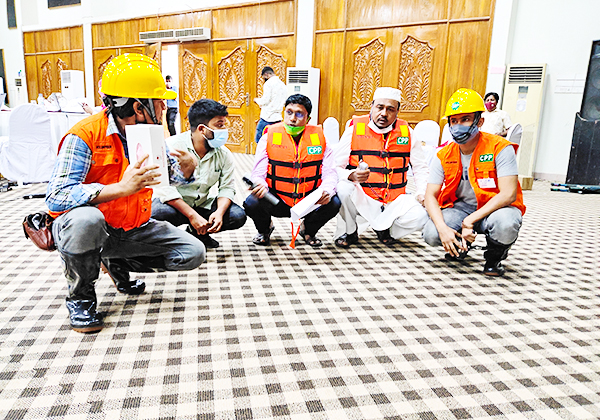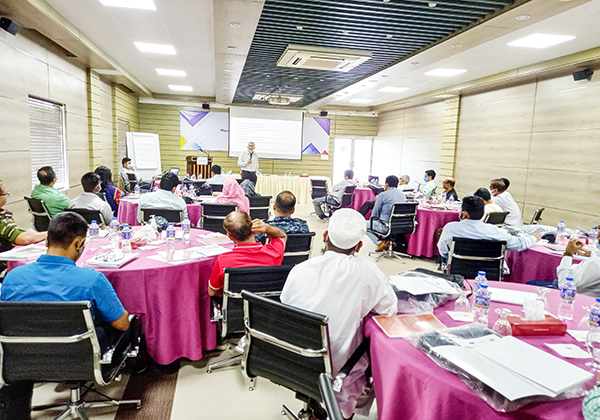Narrative Description of the Project:
Under the project titled "Enhancing Preparedness and Responding to Disaster-Related Displacement in Bangladesh," the International Organization for Migration (IOM) has set its goal to enhance the government's and other relevant stakeholders' capacity in managing evacuations and displacement caused by natural disasters. This objective is to be achieved through the improvement of evacuation procedures, aligning them with global guidelines and protection principles.
In pursuit of this mission, the Institute of Professional Training & Management (IPTM) recognized an opportunity to collaborate with IOM from April 2021 to September 2021 in Dhaka, Gazipur & Cox’s Bazar, Bangladesh. Their focus was on adapting the widely-recognized MEND (Mass Evacuation and Displacement) guidelines to suit the unique circumstances of Bangladesh. This effort involved translating these guidelines into Bangla and equipping stakeholders with the necessary tools to effectively implement these customized guidelines in various emergency scenarios across urban, rural, and coastal settings. The simplified and context-specific MEND guidelines created for Bangladesh address the existing gaps in disaster preparedness and response. The training program involves two Training of Trainer (ToT) sessions, each spanning two days. These sessions will accommodate 30 participants and include a practical simulation exercise to reinforce the learning process.
Key Activities:
- Attended inception meeting & and submitted inception report with final methodology and work plan
- Reviewed the current evacuation practices, policies, and processes of the country and identified strengths and weaknesses in the existing system.
- Reviewed living conditions of people in cyclone/flood shelters, collective centers, and other temporary displacement sites and devised concrete recommendations to improve conditions according to global standards and protection considerations.
- Reviewed global tools, national policies/strategies, relevant publications, and good practices of evacuation management.
- Prepared tools for data collection
- Visited field to disaster-affected areas in coastal and urban settings
- Collected Information through Focus Group Discussions/Key informants’ interviews (with representatives from the government at the central and field levels; other UN agencies engaged in humanitarian response, CSOs/I /NGOs, Academics, disaster-affected community)
- Developed TOT on evacuation and shelter management module
- Prepared shelter management guidelines (English and Bangla)
- Prepared a comprehensive guide for planning mass evacuations in natural disasters (English and Bangla)
- Conducted two days-long 2 batches of TOT on evacuation and shelter management guidelines including a simulation exercise. A total of 60 participants attended the training.
- Conducting a national-level validation workshop (online/offline) with DRR stakeholders.
- Draft Report Submission
- Final Report Submission




